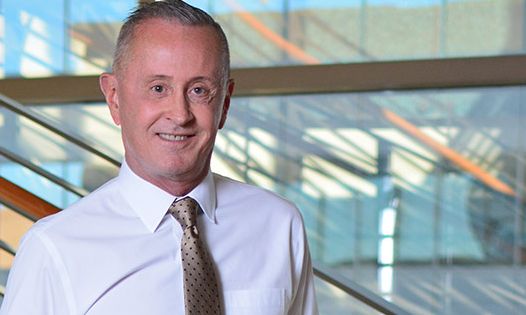When you hear about law schools, you’re often bombarded with a dearth of numbers about where the school ranks amongst competing institutions.
Don Lively, co-founder and president of Arizona Summit Law School, is trying to do something beyond chasing rankings. He hopes to make the legal industry more diverse with his school’s graduates.
“Law is the least diverse white-collar profession in the country,” Lively says. “Without change and institutions that will lead change, it will continue to be the least diverse white-collar profession in the country.”
Lively hopes to lead that change. Az Business magazine talked with Lively about his mission and how he hopes to disrupt the legal industry.
AZ Business: What’s your leadership style like?
Don Lively: I look at leadership as not a function of title, turf or position. It starts with leading yourself and recognizing the impact we have — for better or for worse — on other persons. We’re in a knowledge-worker environment and it’s particularly critical with knowledge workers to create an environment of inspiration and to avoid some of the old, out-worn leadership models: telling people what to do, centering on your ego, being incapable of acknowledging your weaknesses and shortcomings. The model of leadership that I think best fits an environment like our’s is one of authenticity, vulnerability and humility.
AB: How has your diverse career — broadcast journalist, lawyer, educator — helped with your current role?
DL: As I think about it, I think vision. If I were trying to identify strengths, I think it’s probably seeing big pictures and being able to compose and articulate an advanced vision.
AB: What made you want to pursue a legal career?
DL: When I was in broadcasting, it was a curiosity experience, because it exposed me to a wide range of interesting lives, experiences, achievements, failures. I got into law and legal education because I have this curiosity about figuring things out, identifying issues, problems and trying to come up with creative solutions.
AB: What inspired you to co-found Arizona Summit Law School?
DL: When I was in legal education, I went through the process: teaching, writing books, getting tenured and saw that there was something missing in legal education. There was an increasing disconnect with the legal profession. Law schools’ priorities were becoming increasingly mis-calibrated to the legal profession’s needs and direction. In terms of envisioning what a law school should be, that got me to thinking about how to effectuate a model that was more in tune with the times and more responsive to some of the challenges and opportunities out there for law schools. I came to the conclusion you couldn’t do that from within existing legal education. So I began looking for ways to create a new law school.
AB: What is your law school’s model?
DL: The model I wanted to create was one that did two things:
Align legal education more closely with dramatic changes unfolding within the legal profession.
Lead the diversification of the legal profession, which is the least diverse white collar profession in the country.
Law has been in the past, is now, and without change — and institutions that will lead change — will continue to be the least diverse white collar profession in the country.




